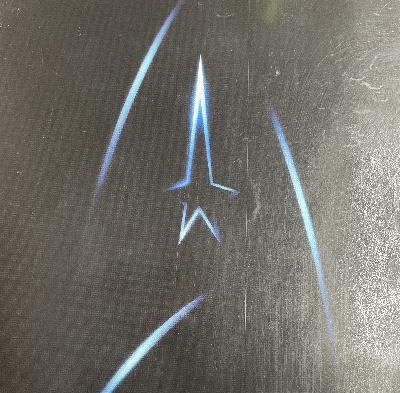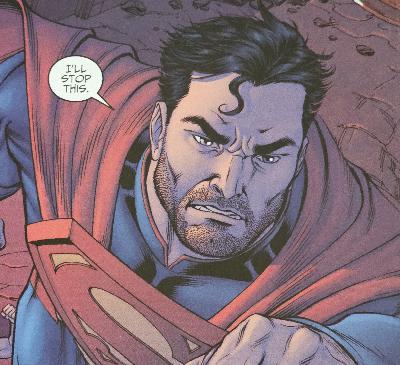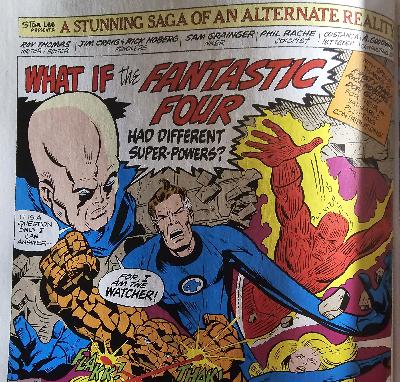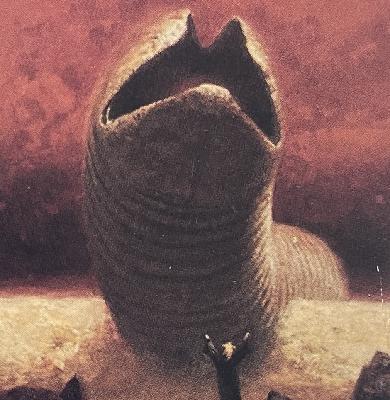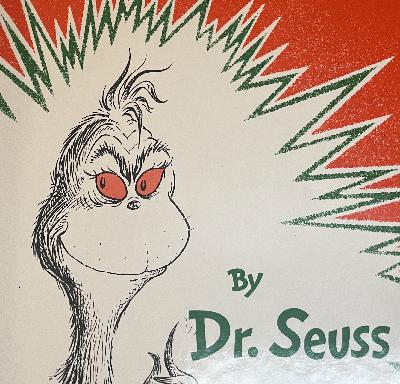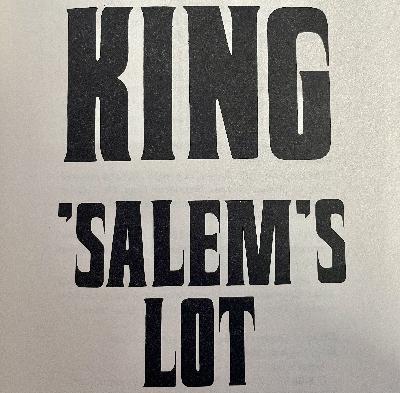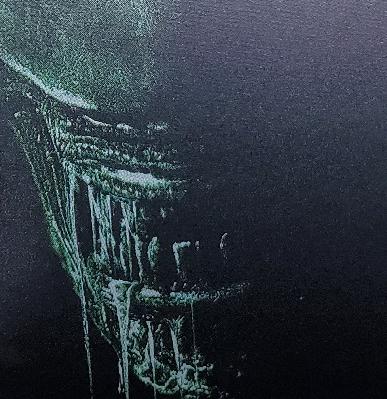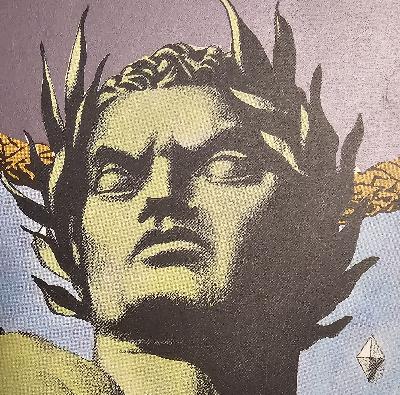Discover Mismatched Texts
Mismatched Texts

Mismatched Texts
Author: Justice Hagan & Andrew Hoffmann
Subscribed: 2Played: 39Subscribe
Share
Description
Hosted by two popular culture superfan-scholars, Mismatched Texts is a show that brings together novels, films, games, and narratives of all kinds into seemingly odd pairings and reveals the ways in which they address similar themes.
111 Episodes
Reverse
Wherein Justice and Andy hijack the discussion of Ira Graves and his violation of Data's body and mind. In this review of Star Trek: The Next Generation's sixth episode of the second season, we encounter the man described by Dr. Pulaski as "the greatest human mind in the universe." He does not live up to this description. What is the nature of bodily autonomy and does Data have the right to his own body and mind? And how do we account for the godlike levels of tolerance the crew affords Graves? Is to know him to love him? It is not.
Wherein Andy and Justice interpret the events of "Loud as a Whisper" in their review of the fifth episode of Star Trek: The Next Generation's second season. In an episode produced and aired during the debate around the Americans With Disabilities Act, Star Trek portrayes a protagonist with different abilities. How is the deafness of Riva shown on screen? How does the crew react to his unique form of telepathic communication? And what happens when those lines of communication break down? First, Riva flips over the chessboard and then, as usual, it's Data to the rescue.
Wherein Justice and Andy swoop into the fray of the controversial new Superman film. It's the first of James Gunn's new DCU and takes a very different approach than the MCU's established pattern of success. How believable does a Superman movie have to be? Why is this movie so crowded? Will there ever be standalone origin stories in this new DCU? And will we ever see a mature Lex Luthor again? Leaping over narratives in a single bound, it's a bird, its a plane, its James Gunn's first bad movie.
Wherein Andy and Justice rake "The Outrageous Okona" over the coals in their review of this fourth episode of the second season of Star Trek: The Next Generation. The main issue with this episode is not only that Okona himself is not outrageous, but that the episode does not fit narratively in season two, nor does it contribute to character development and growth as we've come to expect following the last episode. Because of these qualities, we argue that it's quite possible that this is a holdover in some form from season one. Also, Joe Piscopo? WTF?
Wherein Justice and Andy investigate the events of the third episode of Star Trek: The Next Generation's second season, "Elementary, Dear Data." Who wouldn't love seeing Data as Sherlock Holmes? Well, Katherine Pulaski, for one. This episode continues to explore her technophobic bigotry, while at the same time expanding the character of Data and the wondrous capabilities of the holodeck. We also meet a recurring "villain" in the character of Professor Moriarty, whose fate remains a stain on the record of Captain Picard with it's staggeringly cruel and unusual punishment. Also, Geordie goes AWOL while on duty to cosplay.
Wherein Andy and Justice intentionally slip into the snare of the second episode of season two of Star Trek: The Next Generation, "Where Silence Has Lease." As season two starts to find its footing, we still face some strange developmental choices for the characters and the space. Having encountered another all-powerful entity, the crew confounds expectations by reacting to all of the events in the episode without a shred of professionalism or discipline. Even Data seems unable to form a hypothesis, stuck in the exhausting discurvise patterns of a freshmen physics student. Nevertheless, the episode does mark another step forward in quality for the series as we see glimpses of what the show will become.
Wherein Justice and Andy embark on their analysis of the first episode of season two of Star Trek: The Next Generation, "The Child" as the first entry in their full season two analysis. Season two is critical because it is a pivotal time in the establishment of Star Trek: The Next Generation as the preeminent entry in the Second Age of Star Trek. While season one was imporant but clumsy, season two helps the series to find narrative stability and character position. In this first episode of the second season, several new characters and spaces are introduced that mark critical - and occasionally temporary - changes in series.
Wherein Andy and Justice ressurect the conversation of immortality by looking at the the 1986 film Highlander and the China Miéville and Keanu Reeves 2024 novel The Book of Elsewhere. What is the psychological nature of being an immortal? It seems to be something people wish for, and yet it is often depicted as something that inevitably leads to severe depression and a desire for death. We also discuss the curious situation of a China Miéville co-authorship and his recyclying of the transporter problem from Star Trek. Topics range from Christopher Lambert's bizzare acting choices to the 1980s' fascination with lightning and sparks to Keanu Reeves' refusal to shed the John Wick appearance. Will every character he plays from now on look the same?
Wherein Justice and Andy launch themselves into the conversation about the recently released trailer for The Fantastic Four: First Steps. What does the retro-futuristic setting imply for its space in the MCU? Has anybody ever thought the powers of Marvel's First Family were cool? We sure don't, and we know you don't either. Ultimately, we wonder if this film can redeem the MCU or the failed Fantastic Four adaptations of the past. It probably won't.
Wherein Andy and Justice bemoan the horrifying experience of subjecting themselves to the new film Star Trek: Section 31. This marks the 14th Star Trek film and, given its quality, possibly the last for the foreseeable future. Why does this film exist? How could Michelle Yeoh (an outstanding artist) consent to this film's release? There is no one to blame but Alex Kurtzman.
Wherein Justice and Andy compute the outcome of the first season of Dune: Prophecy on HBO. In these final three episodes, we see even more of a departure from Frank Herbert's Dune lore while at the same time an almost slavish adherence to the original novel. If those things seem in conflict, you're not wrong. And yet, somehow the show remains a compelling experience. More Dune is always good, especially when it's this well-made.
Wherein Andy and Justice slither through a reading of How the Grinch Stole Christmas, a 1957 Dr. Suess classic. Many Marxists see the Grinch as abandoning his Marxist principles, but that is not supported by the text. So what happens instead? What does the Grinch really embrace? Who are the Whos, really? And ultimately, what is the reason the Grinch returns from Mt. Crumpet with myocarditis? Happy holidays Karl!
Wherein Justice and Andy map out the DNA of the new Dune: Prophecy series from HBO. At this halfway point of the series' release, we already see a departure from the style of Frank Herbert and notice some inconsistencies in the source material. While this is clearly meant to be tied to the larger franchise of Villeneuve's Dune parts 1&2 and it matches very well aesthetically, we have some questions about the nature of the prequel texts. What is Desmond Hart? How do the characters know about the connection between worms and the spice ten millenia before the events of Dune? And why can Brian Herbert and Kevin J. Anderson only imagine three families over 15,000 years of human history?
Wherein Andy and Justice examine the "stakes" of remaking old films and stories. Both Salem's Lot and Roadhouse have been remade this year and we're curious to know why. Given their relative success, what does this mean for all of the other shitty movies we wish we could forget? We look at the idea of nostalgia and while we understand why these stories were popular (except for Roadhouse), we marvel at how bankrupt the creative Hollywood industry has become. With Roadhouse 2 just over the horizon, it's difficult to conceive of where rock bottom truly is.
Wherein Justice and Andy punch their way into the celebration of Fight Club's 25th anniversary. Can you believe it's already that old? For us, where Fight Club is part of our history, this anniversary marks a reevaluation of the film and its personal and cultural impacts. What did we use to love about it? Do we still feel the same way? Hint: we do not. It isn't about the message behind it; its about our evolving ideas as we age. (And maybe a bit of the message behind it). Do we need Fight Club at age 40 or 50? Or do we just need parts of it? Or none of it at all?
Wherein Andy and Justice exhume Captain Kirk because of William Shatner's recently proclaimed dissatisfaction with the legendary figure's death. We revisit that scene in Star Trek: Generations and discuss whether or not his opinion holds up. Would Kirk have appeared in NuTrek if he had not died? Would we have even wanted that? Was this an apporpriate end for him and a way to effectively pass the torch to Picard?
Wherein Justice and Andy run screaming from the theater to produce this review of the newest entry in the Aliens franchise, Alien: Romulus. Fede Alvarez daringly returns to the original films' timeline and style, setting it between the first and second films. What do we see in this new entry that distinguishes it from the others? Where does this film hit, and where does it miss? What did you think of the Ian Holmes digital recreation as Rook? (we did not care for it). As a mostly impressive film, we discuss the possible implications for the future of the franchise.
Wherein Andy and Justice slice into the question of whether or not Deadpool & Wolverine and Kingdom of the Planet of the Apes can or have revitalized their respective franchises. TLDL: No. But seriously, both movies are worthwhile and Deadpool & Wolverine borders on excellence. Fight us. While Kingdom of the Planet of the Apes made some questionable narrative decisions and Deadpool & Wolverine purposefully criticized and tried to reboot the MCU, neither accomplished their goal of franchise revitalization. In the end, more attention is clearly needed to resuscitate these narrative universes.
Wherein Justice and Andy burn down the final season and really the entire series Star Trek: Discovery. What once sounded promising turned into a catastrophe. From initially placing it just before the original series time and then spore-driving it nearly a millenium into the future where the Federation no longer existed, this show has made an unprecedented series of mistakes in the franchise: focusing too heavily on inner turmoil and questions of trauma, foreclosing on any other possible additions to the intervening time , and basically making pointless the contributions of TOS, TNG, DS9, VOY, and ENT. Needless to say, we're glad it's finally over. And we're dreading Star Trek: Academy.
Wherein Andy and Justice run the guantlet of Supergiant's Hades franchise of games. While this episode mostly looks at The Hugo Award winning first game, we also talk about Hades 2 which is currently in early access. What makes these games so compelling, even for newcomers to the rougelike genre? For starters, its engagement with Greek mythology makes it attractive to those who encountered those stories early in life. Secondly, this isn't a traditional rougelike, but one that unfolds its story even through failure. Have a listen and get ready to die a thousand horrible deaths.


